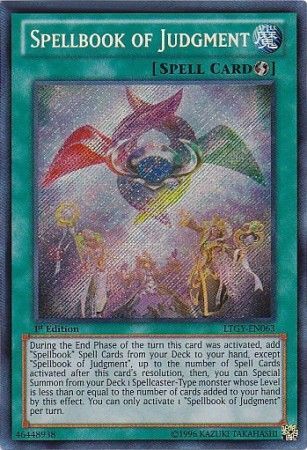

Spellbook Star Hall: Gain spell counters, 100 atk for spellcasters for each counter and if destroyed add 1 spellcaster with level lower or equal as the spellcounter on it. Spellbook Organization: Reorganize the top 3 cards of your deck Have 5 SB in the GY, excavate 2 card from deck and add all SB spells into hand.

Spellbook Library of the Heliosphere: Essentially a terrible version of Adamancipator effect. Spellbook Library of the Crescent: A Spellbook searcher as long as your GY has no SB in it and limits you to SB spells The Grand Spellbook Tower: It offers you 1 draw per turn and a special summon from hand or deck based on SB cards in the GY The card only lets you get Spellbook Spells which are the following: Now lets take a look at the first point the plusses, because the card only gets you the said plusses in the End Phase you realistically only ever go as far as max +7 and that is with an empty hand because everything else goes into the GY. Now the reason why many people are against this card is because it generates huge plusses ( Technically max +7) and capatable of the Jowgen Lock. You can only activate 1 "Spellbook of Judgment" per turn. Shakespeare used only one “e” in “The Merchant of Venice”, but used “judgement” in “First Folio.” I suppose if you’re not working within the legal profession, you can use your own judgement on the matter.Before the actual discussion heres the card text of Spellbook of Judgement:ĭuring the End Phase of the turn this card was activated, add "Spellbook" Spell Cards from your Deck to your hand, except "Spellbook of Judgment", up to the number of Spell Cards activated after this card's resolution, then, you can Special Summon from your Deck 1 Spellcaster-Type monster whose Level is less than or equal to the number of cards added to your hand by this effect.

However, the longer version is also accepted as standard in non-legal writing. legal proceedings and legal documents, and even runs afoul of U.S. In short, you can’t go wrong with “judgment.” Adding the extra “e” is a no-no in all U.S. Fowler was writing his book on word usage, the single-e version of judgment was being used by a host of British writers. Conversely, when the renowned British lexicographer H. It appears without the extra “e” in most printed works, but the double “e” judgement can be found throughout society. Most lawyers and courts spell it “judgment”, while the spelling “judgement” is found in many prominent places, including the New York Times.
Spell book of judgment professional#
That professional difference has bled into to U.S. While “judgement” with the extra “e” has had its ups and downs in popularity within Britain lay society, “judgment” remains the preferred spelling in British courts and legal proceedings. Therefore, the traditionally-accepted correct American spelling is “judgment”, while the British still accept and use the spelling “judgement.” But that isn’t the end of the story. The British retained the extra “e”, while America disposed of it. The word “judgment” is also one that has a different spelling in America than it has in England. His reforms were effective in America but were not received well in Britain. An “American standard” similarly developed with the publication of Noah Webster’s “An American Dictionary of the English Language.” Webster tried to establish spelling reforms and standards, which fueled the difference between so many English and British spellings. When Samuel Johnson’s “A Dictionary of the English Language” was published in 1755, a “British standard” began to appear. Many of these differences resulted from a time when spelling standards had not yet been developed. If learning in America, they will learn the American version. If someone learns English in India, they will be taught the British spelling of these words. Many words pronounced the same and that share the same meaning in the United States and Britain, are spelled differently depending on where you are. The word “judgment” joins a long list of words shared between the United States and our parent country, Great Britain. America is one of the most linguistically-diverse countries in the world, which explains why we have a lot of confusion about how certain words are pronounced or spelled. It is the official language of nearly 100 countries, not including the United States, which doesn’t have an “official language.” It is continually expanding, with over 4,000 new words added to the dictionary every day. It is spoken by nearly 1 billion people worldwide, making it the second most-spoken language, with only Mandarin (1.2 billion) surpassing it. The English language is a fascinating subject with a history as rich as it is confusing.


 0 kommentar(er)
0 kommentar(er)
